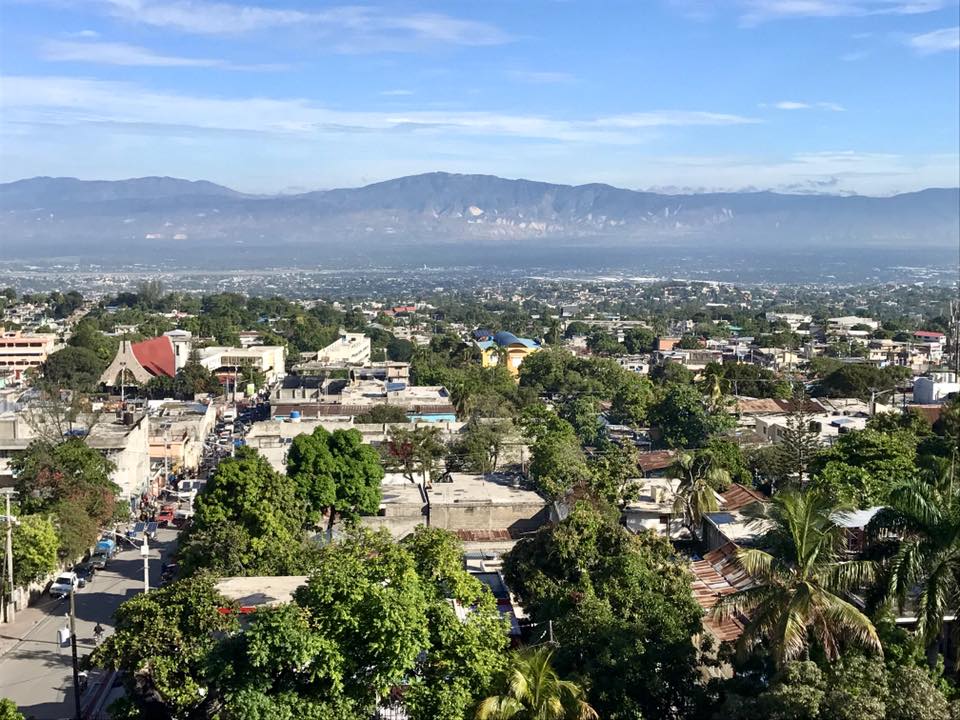
Mar 4, 2022
Statement by the NED Family: The National Endowment for Democracy, the National Democratic Institute, the International Republican Institute, the Center for International Private Enterprise, and the Solidarity Center:
Vladimir Putin’s illegal and unjustified attack on a sovereign, free Ukraine is a watershed moment in the struggle for human freedom. To meet this moment, we are determined to support democracy activists on the frontline with the same sense of urgency they bring to their own national struggle. The National Endowment for Democracy (NED) and its four core partners—the National Democratic Institute (NDI), the International Republican Institute (IRI), the Center for International Private Enterprise (CIPE) and the Solidarity Center—stand in support and solidarity with our Ukrainian grantees, partners, staff, and their loved ones in Ukraine.
Since gaining independence in 1991, the people of Ukraine have time and again demonstrated their overwhelming desire to live in a free and democratic nation. We have been inspired as millions of Ukrainians have worked tirelessly and optimistically to build democratic institutions and practices in their country. Ukraine’s progress and commitment to this goal is what threatens and provokes Vladimir Putin. A democratic example on Russia’s border and a people with a shared culture and history who choose their own leaders, hold them accountable, and display a clear desire to join the community of democratic nations, represent an existential threat to Putin’s more than two-decade rule in Moscow and his ambition to dominate Russia’s neighbors.
Ukraine today is the epicenter of the fight for freedom in the world. The courage of the Ukrainian people—their willingness to risk everything to confront Russian aggression and defend their homeland—is an inspiration. They are a powerful example to all those worldwide who are joined in the struggle against authoritarian regimes that deprive free peoples of their basic rights and liberties, steal national wealth, attack and imprison political opponents, and silence independent media.
So too are the thousands of Russians and Belarusians who have risked arrest or worse to protest this criminal act of aggression. On Sunday, February 27, 2022, more than 10,000 people visited the memorial near the Kremlin marking the spot where Putin’s democratic rival, Boris Nemtsov, was assassinated seven years earlier. This is what Putin, and all dictators fear—ordinary citizens who would like to choose their leaders in free and fair elections and hold those leaders to account.
As the Ukrainian people struggle to preserve their sovereignty, their democracy, and their hopeful future, it is time for all those worldwide who live in freedom to rally to the cause of a free Ukraine.
Putin’s attack on Ukraine comes at a moment when democratic institutions are being systematically undermined across the globe and authoritarian regimes are growing in number and strength. Alert to a great danger, democratic societies should make every effort to secure the freedoms we cherish, the institutions we have built, and the values we have affirmed, to promote a more secure, just, and peaceful world.
Ukraine’s defense should become the valiant first chapter of a global democratic revival. In this task, we are committed to supporting a great coalition of courageous and creative political leaders, civic activists, independent journalists, labor organizers, entrepreneurs, and ordinary citizens who will lead the way.
MEDIA CONTACTS:
NED: Christine Bednarz, [email protected], (202) 200-6872
NDI: Victoria Benner, [email protected], (202) 728-5550
IRI: Ryan Mahoney, [email protected], (202) 914-1617
CIPE: Pam Kelley Lauder, [email protected], 202-721-9200
SOLIDARITY CENTER: Kate Conradt, [email protected]. 202-316-3301

Mar 3, 2022
Thousands of workers in Mexico recently formed an independent union at a GM auto plant in Silao, in central Mexico, voting out a corporate-supported union that did not operate in their interest. On the latest episode of The Solidarity Center Podcast, Maria Alejandra Morales Reynoso, general secretary of SINTTIA, the union that now represents the workers, tells why this victory is a milestone for many Mexican workers who are forced to be part of sham unions. (En español)
Morales shares how workers at the Silao plant stood strong in the face of widespread corruption, laws tilted against them and incredible pressure to cast their vote for a protection union that did the bidding of the company.
The union victory “gave people hope, hope that it was possible to represent workers freely,” she says. “We proved it’s possible to get organized and to fight for our rights and to leave behind the fear that we’re going to lose our jobs.”
“It takes courage to take on an entire, entrenched, corrupt system. Yet the workers in Silao did just that, inspiring workers all over the world,” says Podcast host and Solidarity Center Executive Director Shawna Bader-Blau.
“And they did so at one of the biggest companies in Mexico, with more than 6,000 workers. This is living proof that worker power and global solidarity is a powerful voice and force for democracy and worker and human rights. When workers come together, we cannot be stopped.”
Catch More Solidarity Center Podcast Episodes!
Listen to this all Solidarity Center episodes here or at Spotify, Amazon, Stitcher, Castbox or wherever you subscribe to your favorite podcasts.
Download recent episodes:
The Solidarity Center Podcast, “Billions of Us, One Just Future,” highlights conversations with workers (and other smart people) worldwide shaping the workplace for the better.

Mar 2, 2022
In Nigeria—where 93 percent of working people toil in the informal economy for low wages, unprotected by labor law and without social services such as pensions and healthcare—app-based workers are fighting for their rights.
With Solidarity Center support, today the Federation of Informal Workers of Nigeria (FIWON), the National Union of Professional APP-Based Transport Workers (NUPA-BW) and the Professional E-Hailing Drivers and Private Owners of Nigeria (PEDPA) launched a joint campaign for formal recognition and adequate representation for all, regardless of classification.
“A worker is a worker,” says Solidarity Center Nigeria Country Program Director Sonny Ogbuehi. “And all working people have the right to join together to secure the decent jobs and fair wages they deserve.”
During the early part of the pandemic, employment in Nigeria plummeted. Although employment has since rebounded, most newly created jobs are precarious and the cost of living has skyrocketed. Many young people, including those who graduated university into the pandemic, are now employed in the gig economy or other informal-sector jobs because no formal-sector work is available.
Following a Supreme Court decision in the United Kingdom classifying Uber drivers as workers rather than independent contractors, NUPA-BW drivers in May last year announced a class action suit against two international app-based ridesharing companies for compensation of unpaid overtime and holiday pay, pensions, social security, as well as union recognition. A month prior, drivers in Lagos embarked on a strike for an immediate increase in fares to compensate for the cost of goods and services that, PEDPA said, had increased by more than 200 percent without a commensurate fare increase.
“We want [ride-share companies] to respect the Nigerian constitution and labor law,” says NUPA-BW President Ayoade Ibrahim.
The joint campaign’s demands include full worker and union rights; provision of social protection programs, including pensions, adequate and affordable healthcare, and disability care; provision by the employer of basic workplace infrastructure such as electricity, water and toilets; improved safety and security measures; and worker input into pricing.
The campaign will:
- Support a new NUPA-BW case at the national industrial court for classification of app-based drivers as workers
- Produce a weekly call-in radio program to educate the public about the challenges faced by workers employed by app-based companies and other informal-sector workers
- Facilitate platform workers efforts to organize and support their efforts to advocate for their rights with government and policy makers, employers and within the public domain.
Some 2 billion people work in the informal sector globally, as domestic workers, taxi drivers and street vendors, many of them women. This number has only increased during the COVID-19 pandemic. Informal-economy work now comprises most jobs in many countries and is increasing worldwide. Although informal-economy workers can create up to half of a country’s gross national product, most have no access to health care, sick leave or support when they lose their jobs, and they have little power to advocate for living wages and safe and secure work. The Solidarity Center is part of a broad-based movement in dozens of countries to help workers in the informal economy come together to assert their rights and raise living standards.

Feb 28, 2022
Violence broke out on Wednesday, February 23, as Haitian police opened fire on garment workers demonstrating for higher wages and killed a reporter, according to witness reports. Two other reporters were injured at the scene in Port-au-Prince.
Maxihen Lazzare, who worked for Haitian media group Roi des Infors, died of his wounds at a hospital on Wednesday. Haitian police responded to Lazzare’s death in a press release saying they are launching an investigation and that the police are implicated.
The union coalition released a statement denouncing Wednesday’s violence and condemning “the kind of conspiracy of the police and employers to block the mobilization to force us to accept a minimum wage that cannot meet our needs so that they can continue to suck blood and exploit workers.”
Protests have been ongoing since Haitian workers staged a peaceful demonstration calling for an increase in the minimum wage earlier this month. In January, a coalition of nine trade unions issued an open letter to the prime minister seeking a minimum wage increase from 500 gourdes (about $4.82 a day) to 1,500 gourdes ($14.62). They noted that wages have been stagnant for years while the increasingly high cost of living and rising inflation were eroding workers’ ability to live with dignity.
In response to garment worker demands, the government mandated a new minimum wage earlier this week, bumping pay to about $6.53 a day.
In 2019, the Solidarity Center conducted a wage assessment, with Haitian workers and their unions, and found that garment worker wages then covered less than a quarter of the estimated cost of living.
Unions around the world are pushing back against anti-union violence. Earlier this month labor leaders from several countries stood against anti-union violence in Mexico.

Feb 16, 2022
Following Haitian unions’ open letter to the prime minister demanding an increase in the minimum wage, factory workers in the nation’s capital staged a peaceful protest outside the SONAPI industrial park in Port-au-Prince on February 9 and 10.
Videos and photos posted on Twitter showed large crowds pouring into the Metropolitan Industrial Park in the Port-au-Prince community of Delmas. Demonstrators danced to music and held up tree branches, a popular symbol of uprooting or change.
Police fired tear gas, injuring more than a dozen workers, most of them women. The industrial park—which is home to 16 manufacturers, including garment and electronic factories, and employs at least 12,000 workers—was shut down on Thursday as the demonstration continued. Central union confederations (Confederation of Haitian Workers (CTH), Confederation of Workers in the Public and Private Sectors (CTSP), National Central of Haitian Workers (CNOHA) and EntèSendikal Premye Me-Batay Ouvriye (ESPM-BO)) denounced the actions of Intervention and Law Enforcement Corps (CIMO) against peaceful protesters, calling it [English translation] “torture and other cruel, inhuman and degrading treatment.”
Workers at factories producing textiles and other goods make just $4.82 (500 gourdes) per day for eight hours of work and are demanding an increase to $15 (1,500 gourdes) per day. Three years have passed since the wage has increased. Their demands come as a sharp rise in inflation has increased the cost of basic goods and services such as transportation, health care, and education to as much as three times the current minimum wage.
In 2019, the Solidarity Center conducted a wage assessment, with Haitian workers and their unions, and found that garment worker wages then covered less than a quarter of the estimated cost of living.
Workers are continuing peaceful demonstrations until their demands are met.

Feb 15, 2022
Some 3,800 call center workers at Teleperformance in Tunisia won a 13.8 percent wage increase and other key contract gains after staging actions and planning a strike in Tunis, the capital, and other cities.
Represented by the Tunisia General Labor Union (UGTT), the workers negotiated an additional three days paid sick leave and increases in funding for tuition, food vouchers and their social welfare fund, which is administered by the government and includes pensions, maternity benefits, medical benefits and unemployment compensation.
The contract goes into effect immediately for the workers, 80 percent of whom are young and the majority of whom are women.
Teleperformance, a France-based multinational with more than 380,000 employees in 83 countries, made $372 million in profits in 2020. Yet poor and unsafe working conditions at its operations in several countries led workers in France, Morocco and Tunisia to strike last year. Workers say they were not paid if they refused to work without sufficient personal protective equipment, including masks, and pointed to inadequate social distancing and lack of sanitary measures for shared headphones and workspaces.
The UGTT, which now represents 12,000 workers at Teleperformance and other tech centers, has helped 5,000 tech center workers form unions in the past two years.





